Provence is one of the most beautiful and oldest cultural landscapes in the world. People have been growing grapes and olives here for more than 2000 years. Vineyards and olive groves stretch for about 200 kilometers through the departments of Var, Bouches-du-Rhone and part of Alpes-Maritimes. It’s a cold morning in November on the Cote Azur, and we’ve arranged to tour the Chateau Léoube estate on the outskirts of Bormes-Les-Mimosas in the Var department. Chateau Léoube grows grapes on about 68 hectares, and olive trees on another 23 hectares of land. The estate covers more than 500 hectares and borders the Mediterranean Sea for more than four kilometers. Saint Tropez, the cradle of the jet set with fashionable nightclubs and luxury yachts, is only 40 kilometers away.
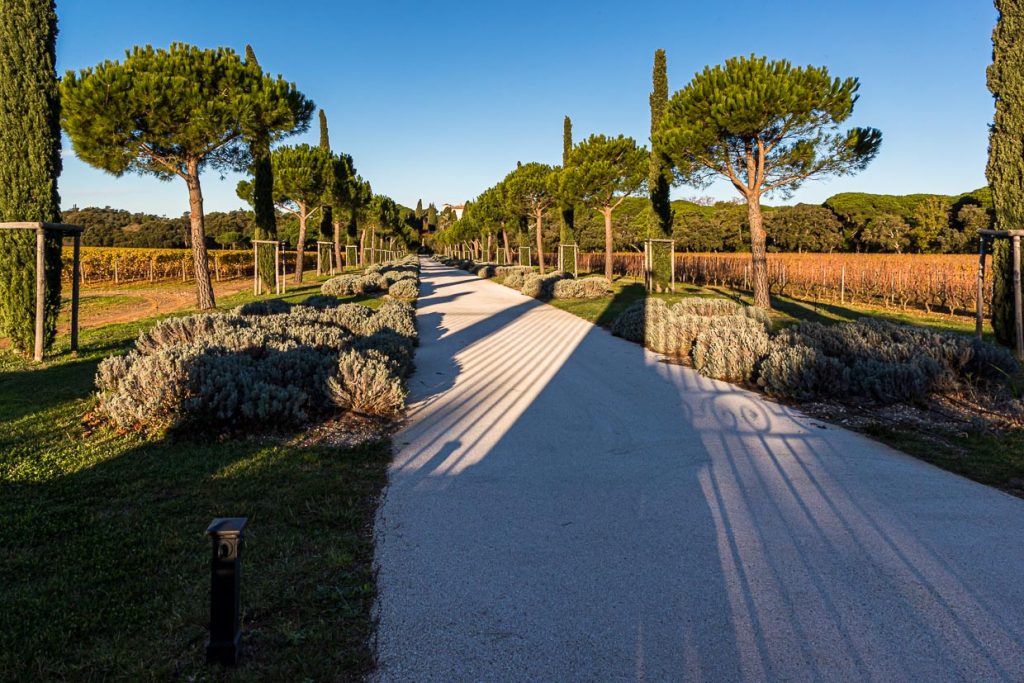
Our visit to Chateau Léoube is entirely devoted to olives. Planted in a mix of shale and clay soils, Léoube’s olive trees benefit from sunshine and a steady sea breeze. There are 4700 trees on the property, grown over three successive generations. Two different olive oils are produced at Chateau Léoube.
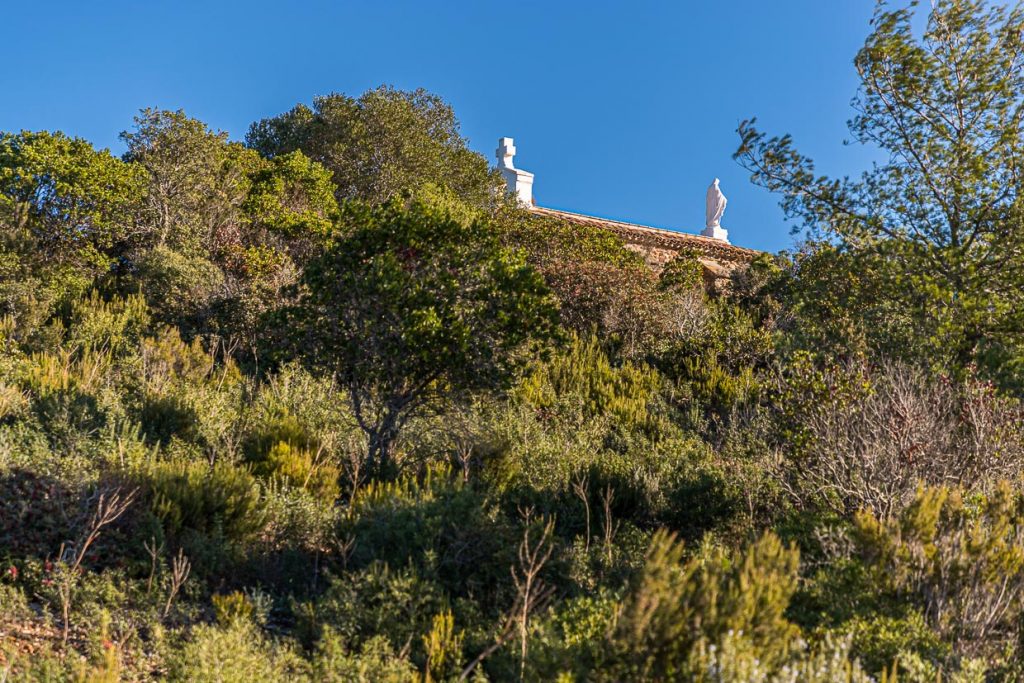
The vegetation here consists of shrubs and bushes. The soils are calcareous and the dry and warm Mediterranean climate with its cold mistral wind cools in summer and protects both the vines and the olive trees from diseases by aerating them. A good condition for the organic approach that the owners of Chateau Léoube follow.
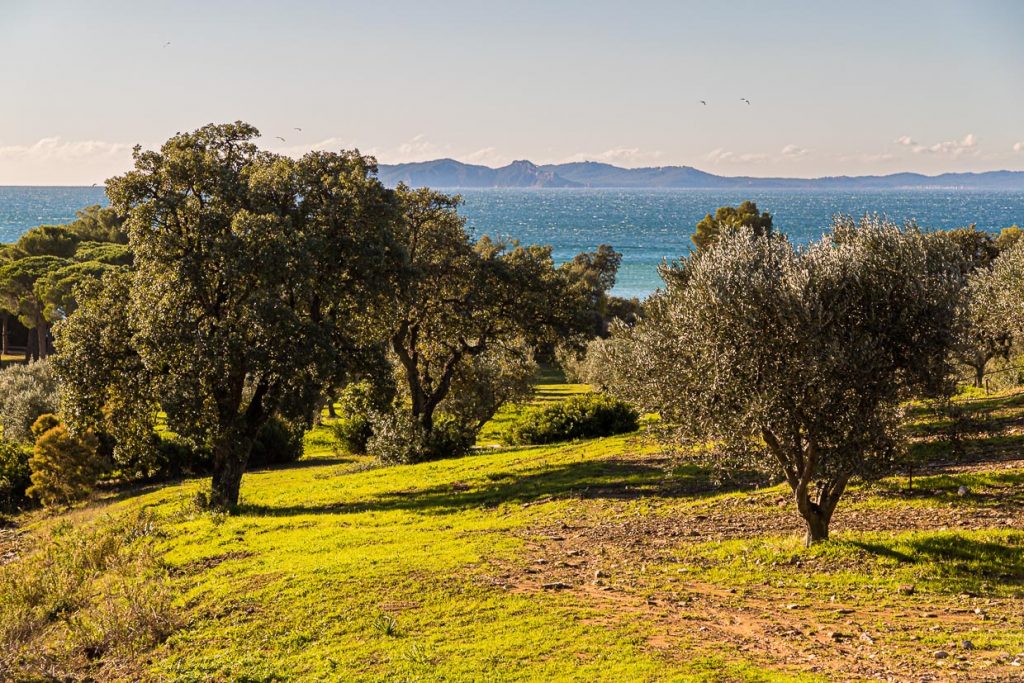
The estate was first mentioned at the end of the 15th century. Its history is eventful. But the cultivation of wine and olives is pursued on the estate from the very beginning. Only from 1920 the cultivation of wine and olives is somewhat forced. With the takeover in 1997 by the Bramford family, a British business family, follows the gradual conversion to organic farming.
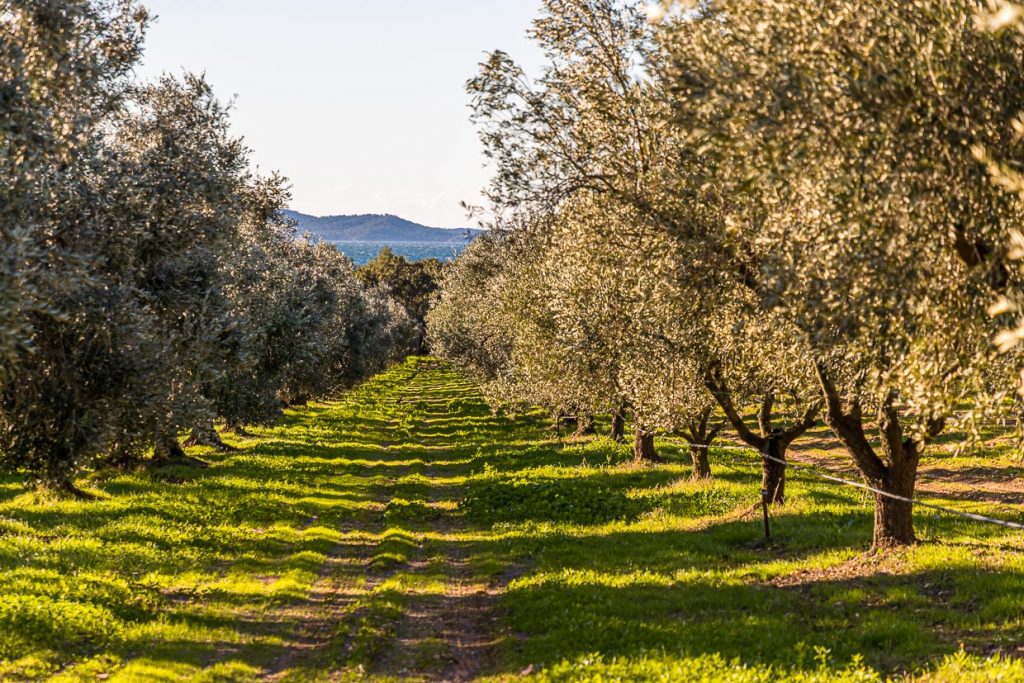
Romain Ott is the production manager of Château Léoube, He comes from a well-known winemaking family in Provence, but is also responsible for the production of the olive oil. The harvest of the olives at Chateau Léoube is based on the “Recolte Tournante”, the moment when the olive changes its color from green to purple-black. Actually, our plan was to accompany the olive harvest at Chateau Léoube, but a week before the visit there were heavy rains in the region and production manager Romain Ott, decided to harvest early. Weather conditions are also becoming more extreme in Provence, Emilie Avignon tells us. She is responsible for international marketing at Chateau Léoube and drives us through the hilly olive groves in an all-terrain vehicle. In 2021, it didn’t rain from May to November, Emilie reports. It was similar in the years before. For two years, therefore, part of the olive groves has also been irrigated. Previously, the rain was directed from the hills in the hinterland to the olive groves. In 2021, instead of the longed-for rain, there was also a threatening fire on the hills. The charred ridges are still clearly visible.
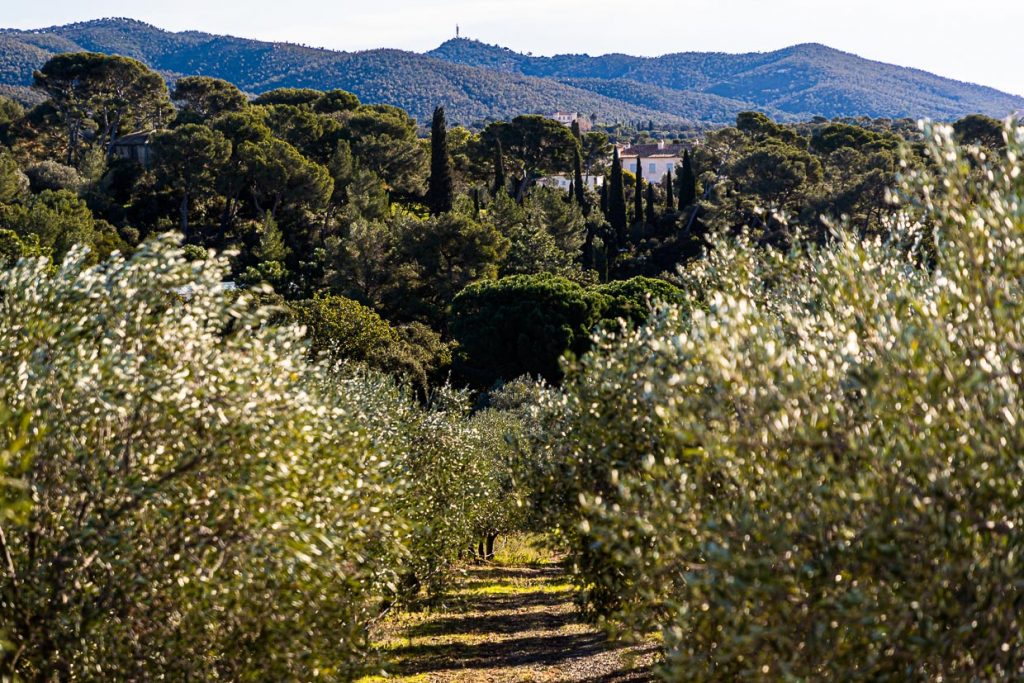
The Defender rumbles over the vast terrain. We drive through a large area with a total of 4,700 olive trees. The soil is fully tilled for a better balance of the trees. Chemical weed killers are not used. The bay of Pellegrin also belongs to the estate of Chateau Léoube. The beach is one of the most beautiful in the Var department. Ancient pine trees lean over the sandy beach and provide natural shade in the summer. The Café Léoube opens every year in April. The kitchen works exclusively with organic products and, of course, the wine is offered here, especially, the rosé wine typical of the region. Yoga classes, cinema nights and concerts are held on this beachfront setting, which in summer is a bit reminiscent of the Caribbean.
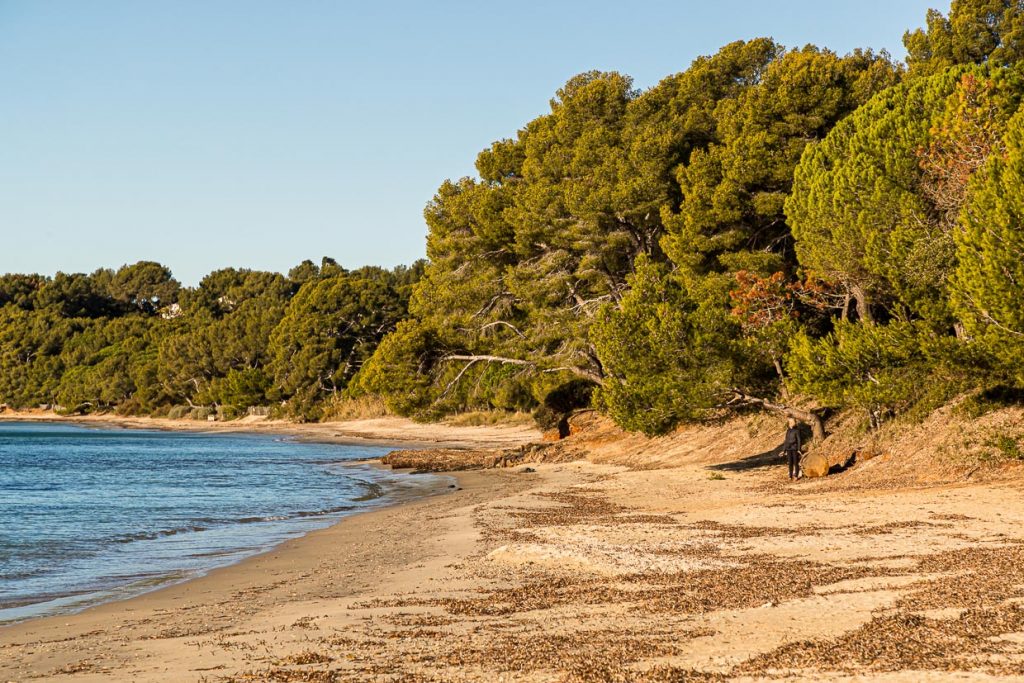
For more than 20 years, the vineyards and olive groves have been managed according to the principles of organic farming on behalf of the Bramford family In 1998, Anthony and Carol Bramford began this process of transformation. The land was reorganized, the soil was worked with care and the vines were planted according to the flow of water to avoid erosion. The use of all pesticides and chemicals was banned in order to work in harmony with nature…. Carol Bramford is a pioneer of sustainable and organic farming in her native Britain. She opened Daylesford Organic Farm in the county of Gloucestershire in 2002.
Much of Léoube’s distinct flavors come from its soil and proximity to the sea. The Bramfords involved their new neighbor and successful winemaker Jean-Jacques Ott, in the conversion to organic production. He was later followed by his son Romain Ott. Lèoube wines are now sold in over 30 countries around the world and Lèoube olive oil is also available in selected delicatessens in Germany.
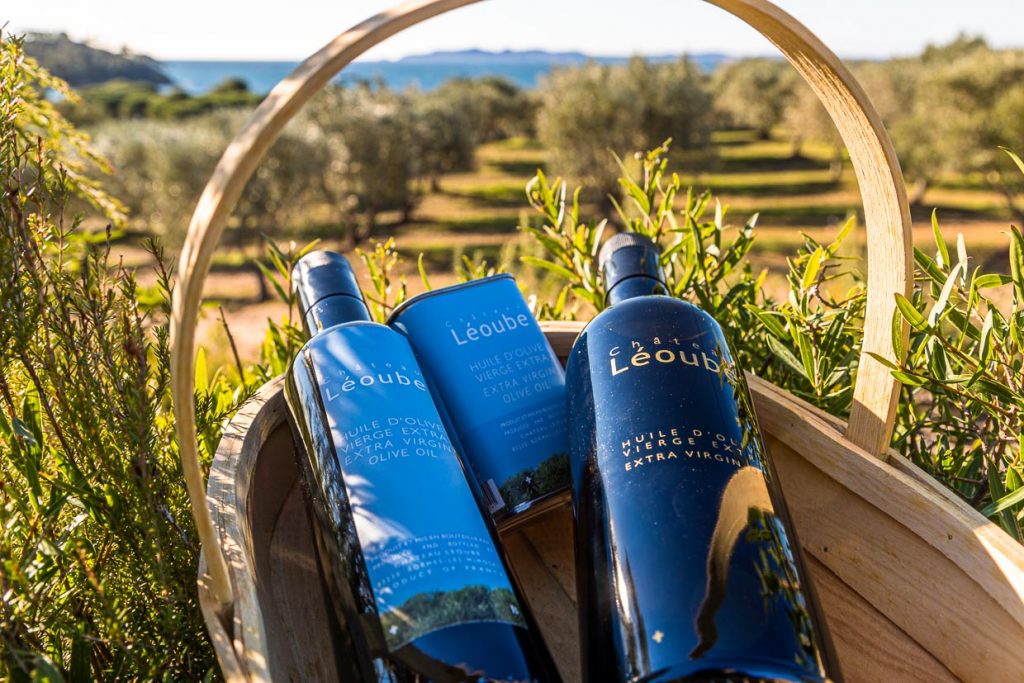
Two varieties of organic olive oils are produced at Chateau Léoube. One is a tribute to the Cote Azur with the olive varieties of Provence Picholine and Aglandau. The oil still has a higher percentage of green olives when pressed. This gives it a green fruitiness with a bitter note on the finish, The Azur Provence is strong and stable so it can be used for hot dishes. Leoube Premium oil also incorporates typical Italian olive varieties in a blend. Leoube Premium combines olive varieties from Provence such as Olivette, Aglandau, Bouteillan, Picholine and Cayon with Pendolino, Moraiolo and Frantoïo olives from Italy. They give an additional freshness to the oil. The olive oil has a delicate subtle flavor of green tomatoes and fresh herbs.
The research trip was partially supported on site by the French Tourism Federation

